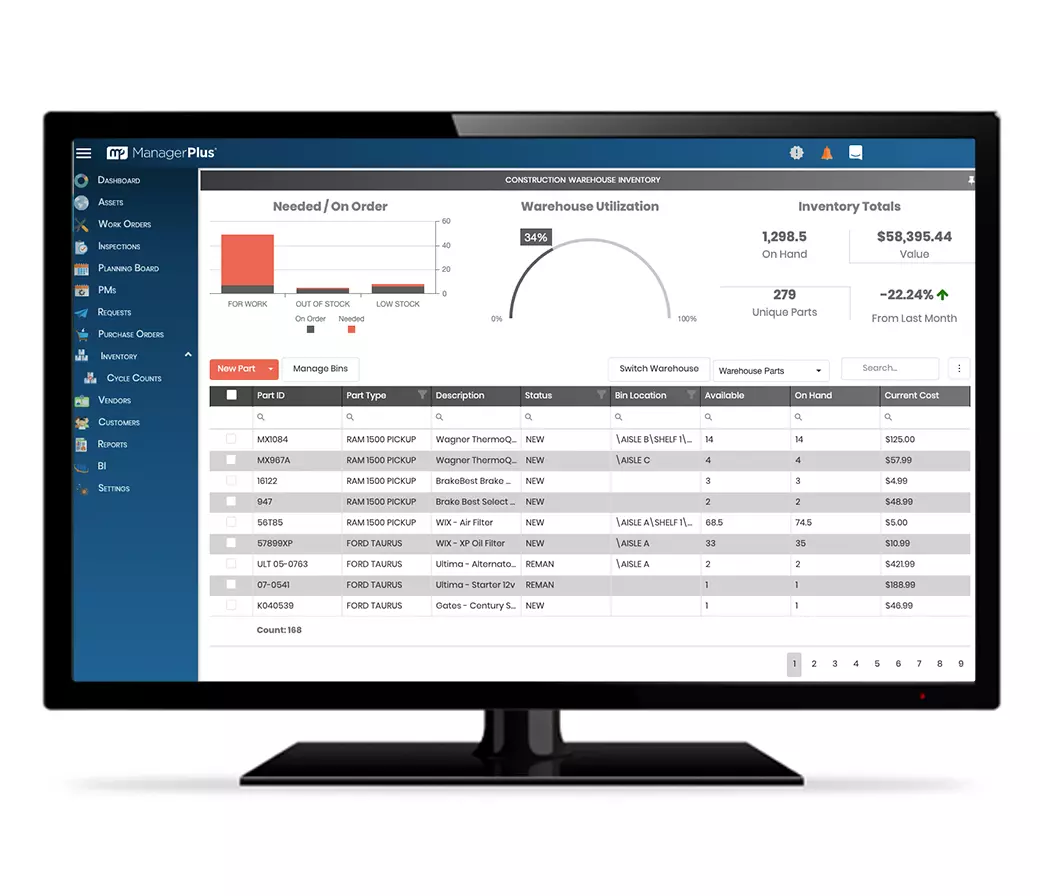With the fast-paced nature of life and business, keeping track of vehicle maintenance and mileage records can easily fall to the bottom of your to-do list while you’re attending to other urgent or important tasks. However, once you fall behind in record keeping, it can be almost impossible to catch up and capture all the necessary data from weeks or months of missed tracking. So, it’s critical to have a good system in place to manage all your vehicle records.
One proven way to easily manage all the records for your vehicles is with a vehicle logbook.
What is a vehicle logbook?
A vehicle logbook is a central place for storing all the records pertaining to a particular vehicle. It can be a physical book, a file, a spreadsheet, an app, or an online software solution. In the past, vehicle logbooks were physical books where records were written by hand, but technology has since provided us with much better digital options.
While you can still choose to use a physical book, these days most people opt for online tracking through smartphone apps or software programs. With a tracking app or software program, you can quickly and easily track everything from daily mileage to maintenance and more.
How do I get a logbook for my car?
If your vehicle is part of a fleet, then your company should have a system in place for tracking information about the vehicle’s mileage, maintenance records, etc. If you’re not sure what the process is, check with the fleet manager for your company.
If you’re a fleet manager looking for a vehicle logbook system to more easily manage your company’s fleet, you should consider switching to software specifically designed for fleet management. With fleet manager software like ManagerPlus Lightning you can replace outdated record-keeping methods like physical logbooks or spreadsheets and simplify your entire fleet management process.

What is the purpose of a vehicle logbook?
Vehicle log books are a convenient place to keep all the information about a vehicle. Tracking information about your vehicle is important for a number of reasons.
Resale Value
Managing the resale value of your vehicles is an important part of fleet management. When you can offer potential buyers a complete record of the vehicle’s history, including all maintenance and repair records, you’ll likely receive higher bids for the vehicle.
Scheduled Maintenance
A vehicle logbook is a great way to keep up with scheduled maintenance, no matter how many vehicles you have. By using an app or software program as your vehicle logbook, you can set up automated reminders to let you and your drivers know when it’s time to have any maintenance work completed. Using a logbook takes the guesswork out of keeping track of the maintenance for your fleet vehicles.
Safety
Proper maintenance is an important key to ensuring vehicles are safe for driving. A vehicle logbook helps drivers and fleet managers keep track of important maintenance milestones that can affect the safety of the vehicle. In addition, if the car is ever involved in an accident, a detailed vehicle logbook can help demonstrate that the vehicle was safely and properly maintained over time.
Accounting and Taxes
Fleet vehicles offer a variety of tax deductions for businesses. In order to take advantage of those tax breaks though, you have to have detailed records of the expenses and mileage for each vehicle throughout the year. The IRS has specific guidelines outlining what vehicle records have to be kept for tax deduction purposes.
Can you sell a car without a logbook?
In the United States, a vehicle logbook is not a legal requirement for a vehicle, so it’s entirely legal to sell a car without a logbook. In some places, such as the United Kingdom, logbooks are required to be provided with every vehicle and it can be very difficult to transfer ownership of a vehicle without one.
Even though logbooks aren’t legally required in the United States, keeping a vehicle logbook for all your vehicles is a good practice to develop and offers a lot of long term benefits for maintenance and resale purposes.
What is the importance of a logbook for fleet vehicles?
In addition to supporting vehicle resale value, keeping good maintenance records, and establishing records for tax purposes, fleet vehicle managers have additional considerations when it comes to vehicle management and tracking, such as expense management, employee accountability, compliance, and risk management. Logbooks help fleet managers track vehicles and drivers individually. The larger a fleet grows, the more important logbook records become for both cost analysis and risk management.
If you’re managing dozens, or even thousands of vehicles in a fleet, then tracking important information with individual or physical logbooks isn’t realistic or efficient. While having logbooks for individual fleet vehicles is important, tracking data across your entire fleet can be a game changer for fleet management when it comes to expense reduction, employee accountability, and risk management.
For large or growing fleets, optimizing fleet management with a software such as ManagerPlus Lightning from iOFFICE helps you track, analyze, and improve fleet operations while saving money over time. You can aggregate the data from your fleet and track individual vehicle information as well as identify trends in areas such as safety, maintenance, and expenses.
 With ManagerPlus Lightning, you can also:
With ManagerPlus Lightning, you can also:
- calculate the total cost of ownership for vehicles
- optimize inspections and maintenance scheduling
- track usage data in real time
- manage inventory levels, and more
Though no tool can replace your experience and expertise as a fleet manager, with a program like ManagerPlus Lightning, you can more easily manage your fleet and devote your time to the real work of fleet management and maintenance, instead of doing data entry and hounding drivers for their logs.
Vehicle Logbook Summary
Maintaining up-to-date vehicle records are important for any vehicle, but are especially vital when it comes to proper fleet management. While vehicle logbooks are essential tools for managing individual vehicles, you need a more robust and comprehensive system for managing the information and vehicles in a fleet.
When choosing the best method for managing your company’s fleet, be sure to consider:
- Cost: Are you losing money or value by not properly tracking vehicle maintenance? How much are you spending to repair vehicles because their maintenance schedules aren’t monitored effectively?
- Savings: How much money could your company be saving by having accurate records for every vehicle, including total cost of ownership and repair costs?
- Accountability: Fleet management software helps keep drivers and managers accountable for expenses, mileage and repairs.
- Efficiency: Having all of your fleet’s information in one location maximizes efficiency, reduces the opportunity for mistakes, and highlights areas for improvement.
Whether your fleet is made up of two vehicles or thousands, managing them can be a complex, time-consuming process. Schedule a demo of ManagerPlus today to see for yourself how we can help you save time and money managing your fleet.


